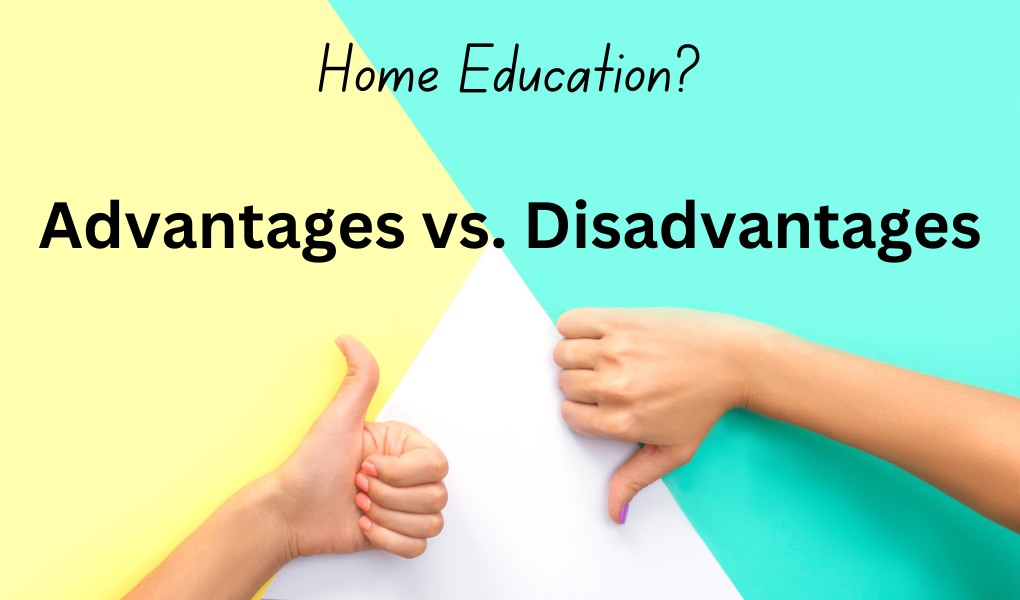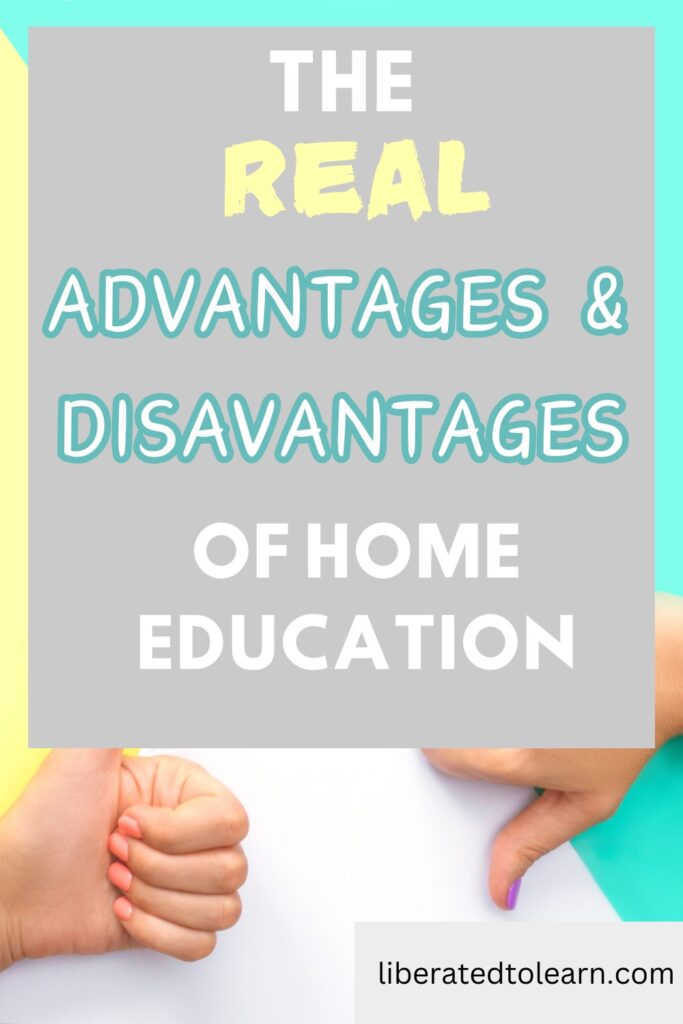As with any educational choice, Home Education comes with its own set of advantages and disadvantages that parents need to consider. So, we’ve listed them for you!


Home education, also known as homeschooling, is an educational option where children are taught at home instead of attending a traditional public or private school. This approach has seen a resurgence in recent years, particularly in the wake of global events, like the pandemic, which disrupted traditional schooling. As with any educational choice, Home Education comes with its own set of advantages and disadvantages that parents need to consider. So, we’ve listed them for you!
Advantages of Home Education
Customised Learning Experience
Personalised Pace and Style:
One of the most significant benefits of Home Education is the ability to tailor the education to fit the child’s unique learning pace and style. Whether a child is a fast learner or needs more time to grasp certain concepts, Home Education allows for a customised learning schedule and lets children set their own pace.
Focus on Interests:
Parents can design a curriculum that aligns with their child’s interests and strengths, which can make learning more engaging and enjoyable. This can really foster a love for learning and encourage children to dive into topics that they are really passionate about
Flexible Schedule
Adaptable Timing:
Home Education offers a flexible schedule that can adapt to any family’s needs. This flexibility is beneficial for travel, family commitments, or integrating real-world experiences into education. It also means that there’s less pressure when a schedule needs to be changed or adapted.
Reduced Stress:
Without the constraints of a traditional school timetable, children can learn in a more relaxed environment. This can lead to reduced stress and burnout, allowing children to approach learning with a fresh mind each day.
Strong Family Bonds
Quality Time:
Home Education allows families to spend more time together, which can strengthen family bonds. And because parents are more involved in their children’s education and daily activities, this leads to a closer relationship.
Values and Morals:
Parents have greater control over the values and morals that their children are exposed to, ensuring that their educational environment aligns with the family’s beliefs and principles.
Safe Learning Environment
Control Over Environment:
Home Education provides a safe and controlled learning environment without the worry of bullying, peer pressure, and other social issues that can be prevalent in traditional schools.
Health and Well-being:
Particularly during times of health crises, Home Education can protect children from exposure to illnesses and create a healthier learning space.
Efficient Use of Time
Focused Learning:
Without the distractions and interruptions that can occur in traditional school settings, home educated children often complete their schoolwork more efficiently. This can leave more time for other activities and interests.
Flexible Vacations:
Families can take vacations during off-peak times, which can be more affordable and less crowded.
Enhanced Family Values and Cultural Awareness
Cultural Education:
Parents can incorporate their cultural traditions and languages into the curriculum, providing a richer and more diverse educational experience.
Moral and Ethical Guidance:
Home Education allows for the integration of moral and ethical teachings that align with family values.
Disadvantages of Home Education
Limited Socialisation Opportunities
Social Skills Development:
One of the primary concerns about Home Education the potential lack of socialisation with peers. Children may miss out on opportunities to develop social skills, make friends, and engage in group activities.
Extracurricular Activities:
Access to extracurricular activities such as sports, music, and clubs can be more challenging for home educated children, though many communities offer homeschooling co-ops and other resources.
High Parental Involvement and Responsibility
Time-Consuming:
Home Education requires a significant time investment from parents, who must plan lessons, teach, and often juggle these responsibilities with other household or work duties.
Educational Expertise:
Parents may feel unprepared or lack confidence in teaching certain subjects, particularly as children reach higher grade levels. This can be mitigated by using online resources, hiring tutors, or joining homeschooling networks.
Resource Intensive
Financial Costs:
While Home Education can be more affordable than private schooling, it can still involve costs for curriculum materials, educational resources, and extracurricular activities.
Limited Access to Facilities:
Homeschoolers may not have easy access to the facilities and resources that traditional schools offer, such as science labs, libraries, and sports equipment.
Potential for Gaps in Education
Inconsistent Coverage:
Without a standardised curriculum, there is a risk that certain subjects or skills might be underemphasised or overlooked. Parents need to ensure they provide a well-rounded education that meets educational standards.
Standardised Testing:
Home educated children may face challenges in preparing for standardised tests and college entrance exams, although many resources and practice tests are available to help with this.
Isolation from Mainstream Education
Lack of Exposure to Diverse Viewpoints:
Home educated children might have limited exposure to diverse perspectives and ideas that they would encounter in a traditional school setting.
Difficulty in Transitioning:
If a home educated child decides to transition to a traditional school, they may face challenges in adapting to the new environment and expectations.
Regulatory and Legal Challenges
Compliance with Laws:
Homeschooling regulations vary widely by region and in the UK, families may have to correspond with their local authority which can be stressful.
Potential Scrutiny:
Some parents may feel pressured by the scrutiny of educational authorities or the need to prove their child’s educational progress to others.
Home education offers a unique and personalised approach to learning that can greatly benefit some children and families. However, it also presents challenges that require careful consideration and planning. If you’re contemplating Home Education, it may be useful to weigh these advantages and disadvantages to determine the best educational path for your children. But with the right resources, support, and commitment, Home Education can be a rewarding and successful educational choice.
m@liberated
Want more from Liberated to Learn?
Subscribe to stay updated about new posts, resources and giveaways!












